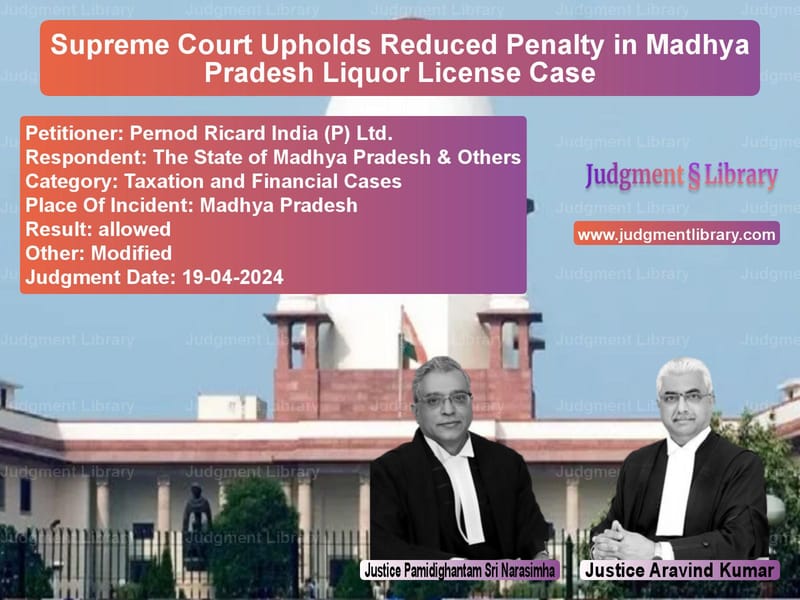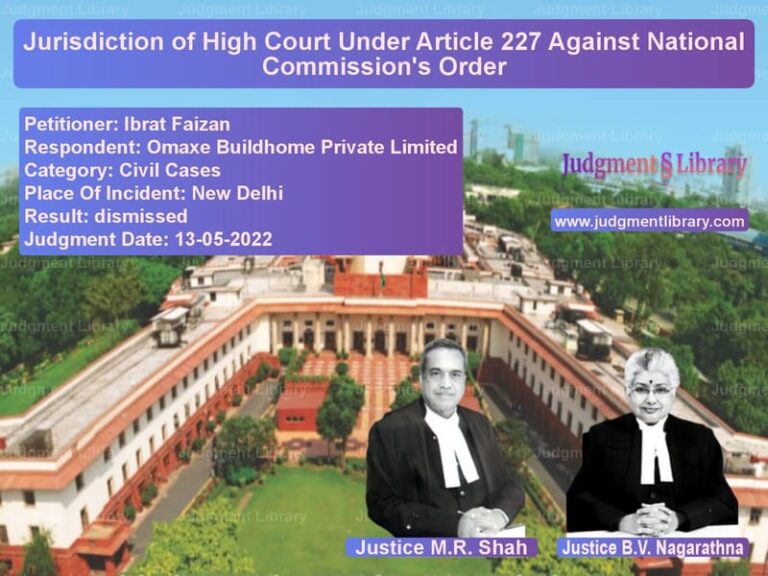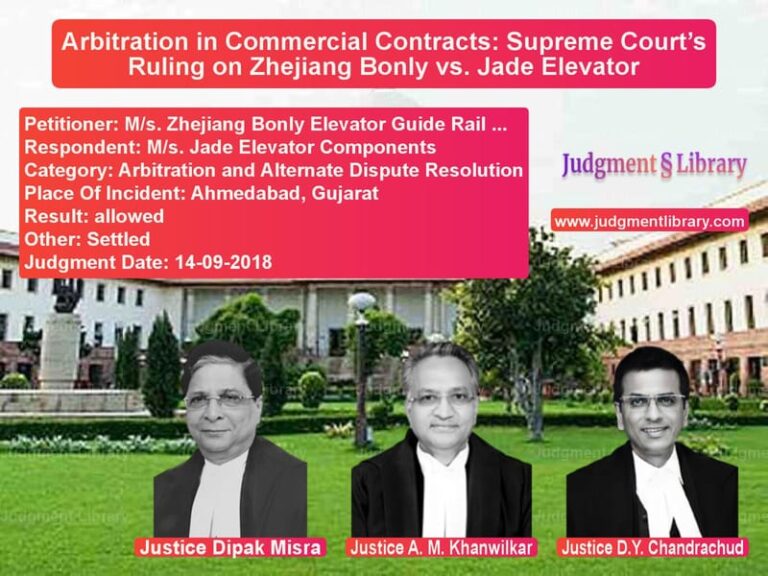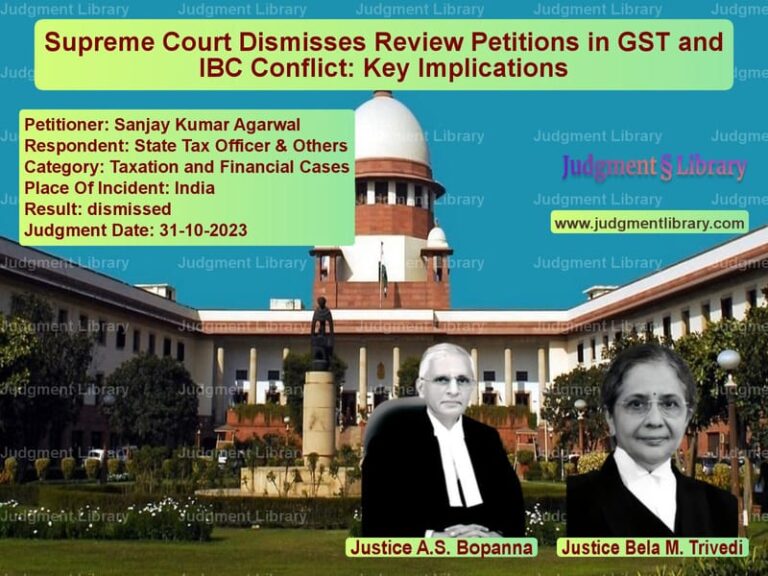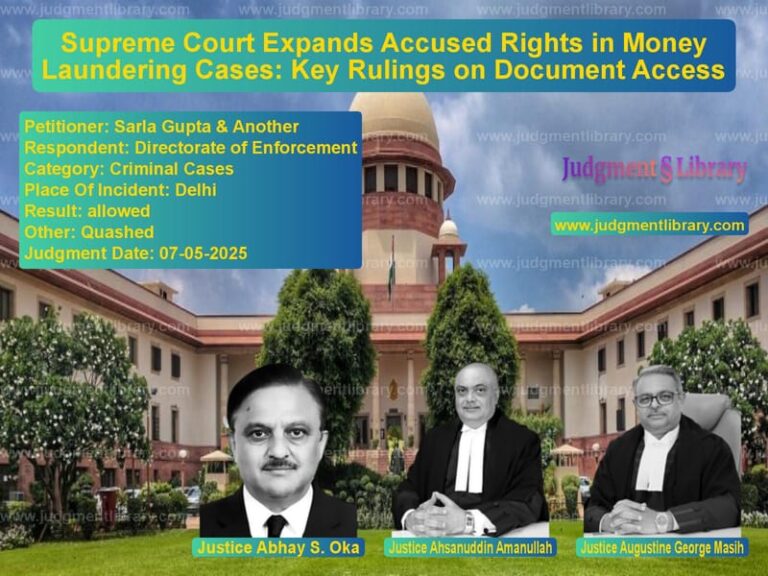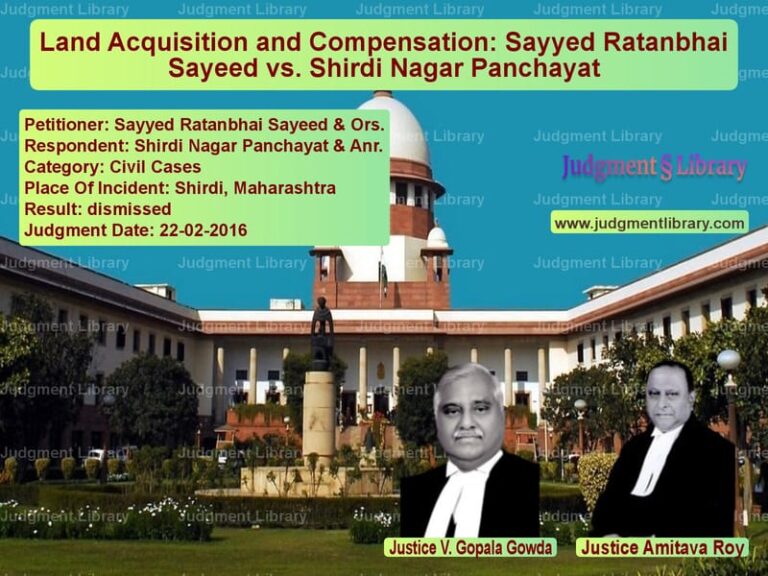Supreme Court Upholds Reduced Penalty in Madhya Pradesh Liquor License Case
The case of Pernod Ricard India (P) Ltd. vs. The State of Madhya Pradesh & Others deals with the applicability of penalty provisions under the Madhya Pradesh Excise Act, 1915. The Supreme Court had to determine whether a penalty should be imposed under the rule existing at the time of the violation (2009-10) or under a new rule introduced in 2011, which reduced the quantum of penalty.
The Court ruled in favor of the appellant, holding that the amended rule, which prescribed a lower penalty, should apply to pending proceedings. The judgment reinforces the principle that legal amendments aimed at balancing punishment and offense should benefit individuals in pending cases.
Background of the Case
The appellant, Pernod Ricard India (P) Ltd., was a sub-licensee under the Madhya Pradesh Excise Act, 1915, engaged in the import, manufacture, and sale of foreign liquor. Under the Madhya Pradesh Foreign Liquor Rules, 1996, the company was required to adhere to strict limits on transit losses when transporting liquor.
According to Rule 16, losses due to leakage, evaporation, and wastage were permissible only within prescribed limits:
- 0.25% for exports of bottled foreign liquor.
- 0.1% for intra-district transport.
- 0.25% for inter-district transport.
Losses exceeding these limits attracted penalties under Rule 19. In 2009-10, the applicable penalty was between three to four times the maximum duty payable on foreign liquor.
However, in March 2011, Rule 19 was amended to reduce the penalty to an amount not exceeding the duty payable on foreign liquor.
Key Legal Issues
- Whether the old or new Rule 19 should apply to the appellant’s case.
- Whether pending proceedings should be governed by the substituted rule.
- Whether imposing a higher penalty under a repealed rule serves public interest.
Arguments by the Appellant
The appellant argued that the demand notice issued in November 2011, after the rule change, should be based on the amended Rule 19. The appellant contended:
“A substituted rule repeals the old rule completely. Therefore, penalties imposed after the amendment must be in accordance with the new rule.”
Additionally, the appellant emphasized that the amended rule was intended to balance crime and punishment, making the old rule inapplicable.
Arguments by the Respondents
The State of Madhya Pradesh opposed the appeal, asserting that penalties should be based on the rule in force during the license period. The State argued:
“The license was issued under the old rule, and any violations must be penalized under the same framework.”
The respondents further contended that a retrospective application of the new rule would be legally unsound.
Supreme Court’s Analysis
1. Effect of Substitution
The Court reaffirmed that when a rule is substituted, it completely replaces the previous version. The judgment cited Zile Singh vs. State of Haryana (2004), which held:
“Substitution results in the repeal of the earlier provision and its replacement by the new provision.”
2. Legislative Intent Behind the Amendment
The Court examined whether the amendment was intended to apply retroactively. It found that reducing the penalty was meant to bring fairness to the regulatory framework, stating:
“When a law is amended to reduce a penalty, it serves the larger purpose of balancing regulation and fairness. It should apply to all pending cases.”
3. Administrative Justice and Public Interest
The Court reasoned that classifying violators into two groups—those penalized before and after the amendment—served no public interest:
“A uniform application of the amended rule ensures equitable treatment for all license holders.”
The Court emphasized that the State’s argument did not justify penalizing businesses more harshly due to procedural delays.
Final Judgment
The Supreme Court set aside the decision of the Madhya Pradesh High Court and ruled:
“The penalty shall be imposed in accordance with Rule 19 as substituted on March 29, 2011.”
This ruling significantly reduced the penalty imposed on the appellant.
Key Takeaways from the Judgment
- Substituted rules replace old rules entirely and apply to pending cases.
- A reduced penalty under an amended law should apply to proceedings initiated after the amendment.
- Administrative fairness and equity must be considered in regulatory penalties.
- Retaining a repealed penalty rule for pending cases does not serve public interest.
- Judicial scrutiny ensures that outdated laws do not cause unjust hardship.
Judgment Date: April 19, 2024
Judges: Pamidighantam Sri Narasimha, Aravind Kumar
Petitioner Name: Pernod Ricard India (P) Ltd..Respondent Name: The State of Madhya Pradesh & Others.Judgment By: Justice Pamidighantam Sri Narasimha, Justice Aravind Kumar.Place Of Incident: Madhya Pradesh.Judgment Date: 19-04-2024.
Don’t miss out on the full details! Download the complete judgment in PDF format below and gain valuable insights instantly!
Download Judgment: pernod-ricard-india-vs-the-state-of-madhya-supreme-court-of-india-judgment-dated-19-04-2024.pdf
Directly Download Judgment: Directly download this Judgment
See all petitions in Tax Evasion Cases
See all petitions in Banking Regulations
See all petitions in Corporate Compliance
See all petitions in Judgment by P.S. Narasimha
See all petitions in Judgment by Aravind Kumar
See all petitions in allowed
See all petitions in Modified
See all petitions in supreme court of India judgments April 2024
See all petitions in 2024 judgments
See all posts in Taxation and Financial Cases Category
See all allowed petitions in Taxation and Financial Cases Category
See all Dismissed petitions in Taxation and Financial Cases Category
See all partially allowed petitions in Taxation and Financial Cases Category

